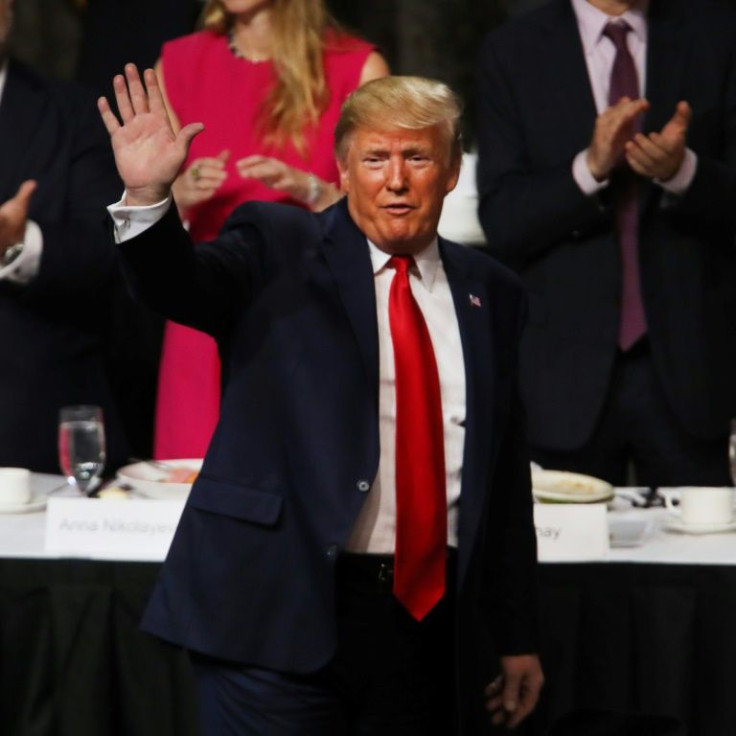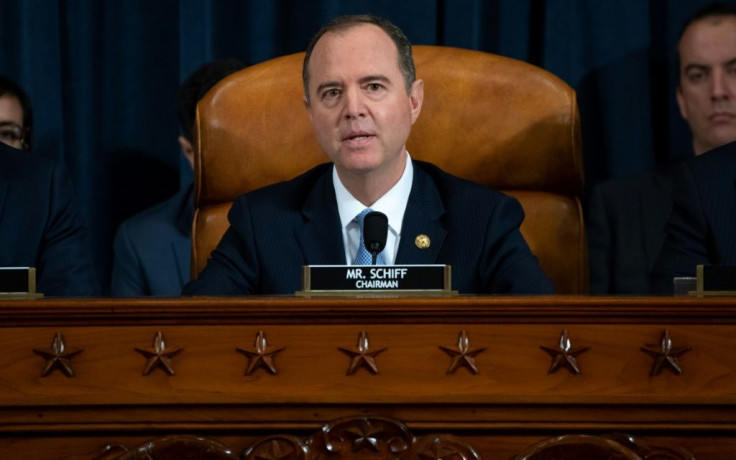Trump Impeachment News: Bribery, High Crimes Are Trump's Impeachable Offenses, Schiff Says

House Intelligence Committee Chairman Adam Schiff (D-CA) said president Donald Trump could be charged with "bribery" and "high crimes and misdemeanors" -- both impeachable offenses under the Constitution -- and the first two witnesses at the first day of the public hearings about Trump's quid pro quo with Ukraine corroborated his assertion.
"I don't think any decision has been made on the ultimate question about whether articles of impeachment should be brought," said Schiff. "But on the basis of what the witnesses have had to say so far, there are any number of potentially impeachable offenses, including bribery, including high crimes and misdemeanors."
Schiff clarified what bribery means in an impeachment inquiry.
"Bribery, first of all, as the founders understood bribery, it was not as we understand it in law today. It was much broader," according to Schiff. "It connoted the breach of the public trust in a way where you're offering official acts for some personal or political reason, not in the nation's interest."
Schiff noted in order to prove bribery, you have to show Trump was "soliciting something of value." Schiff said multiple witnesses before his committee have given testimony to prove this point.
Schiff said Democrats "want the American people to hear the evidence for themselves in the witnesses' own words, and our goal is to present the facts in a serious and sober manner."
Heavily covered by U.S. and world media, Wednesday's open door hearing by the intelligence committee saw chargé d'affaires for Ukraine William Taylor and deputy assistant secretary of state George Kent, both testifying under oath, lend credence to Schiff's observation.
The House impeachment inquiry centers on whether Trump abused the power of his office by withholding $391 million in military aid to Ukraine in exchange for political dirt on former vice president Joe Biden, who is laying strong claim to the 2020 Democratic presidential nomination.
Taylor and Kent described a monthslong effort in 2018 led by Trump's personal attorney Rudy Giuliani and other U.S. diplomats under Trump's orders that placed U.S. foreign policy objectives in Ukraine in jeopardy by creating a shadow foreign policy subservient to Trump's personal interests.

They said they eventually came to believe the release of the vital military aid to Ukraine solely depended on this country announcing investigations into alleged Ukrainian interference in the 2016 U.S. presidential election and Burisma, a Ukrainian energy company that once employed Hunter Biden, Joe Biden's son.
Kent pointed out Giuliani was "infecting" the U.S. relationship with Ukraine in pursuit of Trump's interests. Taylor seconded his opinion.
"To withhold assistance, security to a country fighting Russia for no good policy reason, no good substantive reason -- that is wrong," said Taylor.
Taylor then revealed a blockbuster new allegation that seems to provide the missing link in tying Trump directly to the Ukraine quid pro quo. He said a member of his staff recently told him about a phone call he overheard between Trump and U.S. Ambassador to the E.U. Gordon Sondland in July.
This phone call took place shortly after Trump asked Ukrainian president Volodymyr Zelensky to "look into" the Bidens.
Taylor said his staffer heard Trump ask Sondland about "the investigations." The staffer, later identifed as David Holmes, a political officer at the U.S. Embassy in Kyiv, then asked Sondland how the president felt about Ukraine.
Sondland replied that Trump "cares more about the investigations of Biden, which Giuliani was pressing for" than he did with Ukraine. Holmes will appear behind closed doors on Friday for a deposition.
Taylor said Holmes' statement wasn't part of his closed-door deposition last month because he wasn't aware of it at the time.
© Copyright IBTimes 2025. All rights reserved.





















